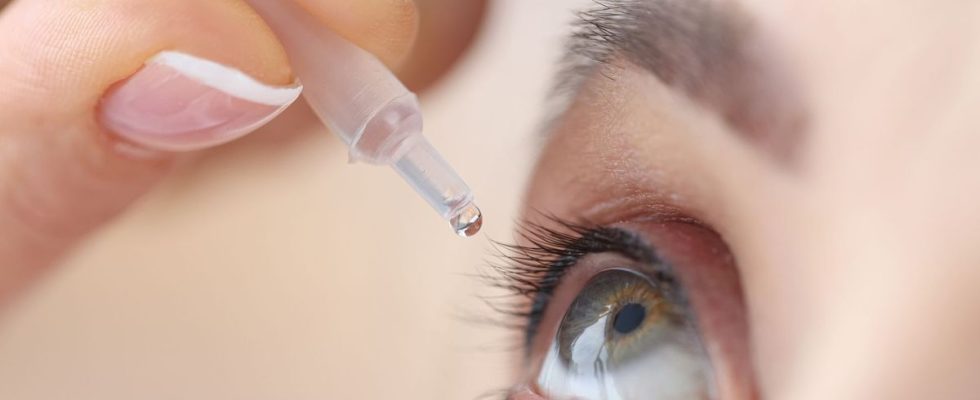Published on
Updated
Reading 2 min.
Did you know ? We don’t all have the same type of bacteria in our eyes. For some, this different microbiome could cause uncomfortable dry eyes, a new study shows.
Like the intestine, the skin or even the mouth, the eyes also have their own microbiome, that is to say a set of microorganisms such as bacteria, viruses, parasites and non-pathogenic fungi. According to a recent study presented at the annual meeting of the American Society for Biochemistry and Molecular Biology, the eye microbiota may be different in individuals suffering from dry eye.
People with dry eyes have more Acinetobacter
To find out, the team collected eye samples from 30 volunteers using a swab. She then used advanced sequencing technology to establish the differences between the microbes found in people with healthy eyes and those seen in patients with dry eye disease.
According to the results, the study showed that:
- Bacteria species Streptococcus And Pedobacter were the most prevalent microbes in healthy eyes;
- Patients affected by dry eye had more species ofAcinetobacter in their microbiome.
“We believe that the metabolites produced by these bacteria are responsible for dry eyes” the authors conclude.
Knowledge to be developed in order to offer treatment
What does this discovery bring to everyday life? Better knowledge of the microbiota of the eye and its differences would allow us to better understand and in the future better manage dry eye.
“We are carrying out further research to understand the metabolic pathways associated with Acinetobacter to better understand the disease”, adds Alexandra Van Kley, head of the research team. Her motivation is precise: she hopes to develop better treatments targeting dry eye.
But the underlying goal is also to better understand the body’s microbiomes and detect if there are links between them.
“Once we properly understand the ocular microbiota, this will improve diagnosis of disease at an early stage. assures Alexandra Van Kley in the press release of her discovery“this knowledge can also serve as a catalyst for developing innovative therapies aimed at preventing and treating eye diseases as well as those that affect the central site of the microbiome: the gut.”
